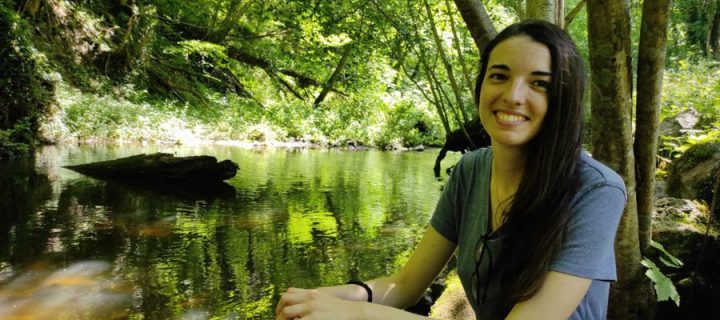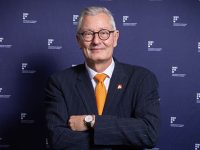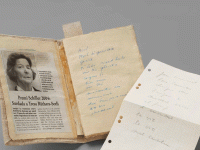Five young researchers from Unifr have made it. They will write their dissertation based on a collaboration between Unifr and a foreign university and will receive a support grant of max. CHF 10.000.-. We present them and their research in a series of portraits.
The programme is called «Cotutelle de thèse», is administered by swissuniversities and very much welcomed by the university management: This grant is intended to recognise the (double) work of doctoral students who choose to have a dissertation jointly supervised with a foreign partner university. The financial grants serve to cover travel and accommodation expenses, among other things. Today we introduce Eleonora Tioli (27) of the Faculty of Arts and Humanities, Department of Art History and Archaeology. Her supervisor is Prof. Michele Bacci.
If my supervisors had to describe me in three words, they would be:
Curious, detail-oriented, motivated.
What my research is about:
My research deals with the way in which Christians described and depicted non-Christian peoples between the late Middle Ages and the early modern period. For this purpose, I study travelogues, chronicles, and ethnographic treatises written in Latin Europe. Moreover, I consider how religious otherness was conveyed through visual art, investigating the iconography of non-Christian peoples mainly in illuminated manuscripts and early printed books. My aim is to give a comprehensive overview of the perception of non-Christian religions during the Middle Ages: Islam, Buddhism, Hinduism and the cults of the nomadic population of the Eurasian steppe. Such an enquiry implies a broader reflection on the concept of identity and otherness: how did Christians stress the differences between themselves and the others? How did they interpret pagan rituals and religious practices?
My partner university abroad and why it is so important for my project:
I am pursuing my PhD in the frame of a «Cotutelle de thèse» between the University of Fribourg and the Scuola Normale Superiore di Pisa. Studying in these two institutions offers me a deep understanding of the work of art and its richness. In fact, these Universities follow different methodologies in the study of the History of Art. The Scuola Normale Superiore considers the work of art mainly from a philological and stylistic perspective. Instead, the University of Fribourg aims at contextualising it in its cultural and historical framework. Such a complementarity is reflected in my PhD project as well as in my training as a researcher in Medieval Art History.
What I hope to gain from this « Cotutelle de thèse » project:
Since the «Cotutelle de thèse» offers me an international education, I hope that this will open more opportunities. I am aware that the future is uncertain for my generation, especially for those who graduated in Humanities. At the same time, I am convinced that research work leads to critical attitude that could help in dealing with the present difficulties.
That could be a challenge for me:
Strike a balance between personal and professional life.
My fellow students should definitely know that:
I’d like to take this opportunity to study abroad to discover Switzerland, its landscapes, and cultural heritage. Therefore, I am always up to make a trip.
__________
- Website of the Scuola Normale Superiore di Pisa
- Further information on the project
Do you also feel like travelling now?
Take the opportunity and venture a study exchange at one of Unifr’s European partner universities. There are still places available for 2021/2022. First come, first served! To the Unifr mobility programme: https://www.unifr.ch/studies/en/mobility/
__________
- Trauer muss sein. Aber wie halte ich das aus? OMG Podcast – Folge 17 - 26.11.2025
- Ein Gespräch mit Bruno Staffelbach - 25.11.2025
- A Conversation with Cardinal Pierbattista Pizzaballa - 20.11.2025





